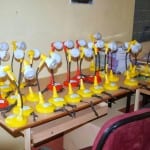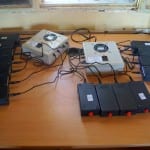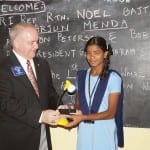Republished from Kearney HUB (Sunday 3/30/14)
By ASHLEY WHITE Hub Staff Writer
BANGALORE, INDIA — Roughly translated, “Vidya Deepa” means “light for education” in Kannada, the primary language of Karnataka in southwest India. Last month, two area Rotarians traveled more than 8,000 miles to bring a literal translation of “Vidya Deepa” to this isolated corner of the world.
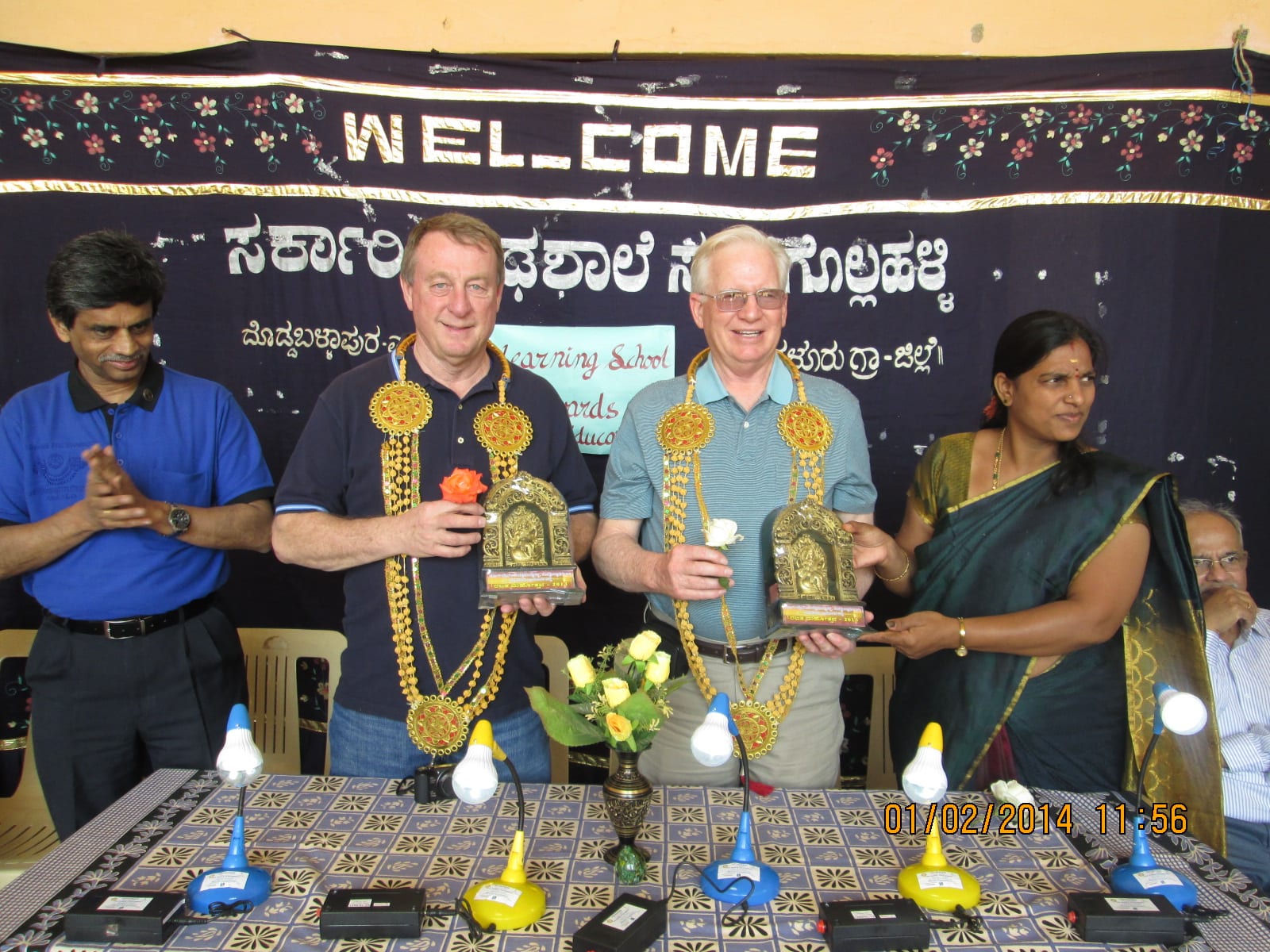
Don Peterson on the students’ reaction to the lamps and e-learning kits, “It was like you were giving them a new bike. The appreciation of the kids and the staff was just overwhelming. I believe some of that was realizing that people care about them and their education.”
Don Peterson, a Kearney Dawn Rotary Club member, and Bob Butz, a Holdrege Rotary Club member, flew to Bangalore, India, at the beginning of February and spent 12 days visiting rural schools in southern India. The two men were there to assess Vidya Deepa, an international service project co-sponsored by Rotary District 5630, which includes 35 Rotary clubs in central and western Nebraska.
The project supplies solar LED lamp kits and e-learning kits, including refurbished Hewlett-Packard laptops, to rural schools in a 140-kilometer radius of Bangalore. It’s a multinational project, co-sponsored by the Bangalore West Rotary Club and Rotary District 3190 in Karnataka.
Peterson and Butz went to India as representatives of the Nebraska district to gauge the effectiveness of the project and help distribute lamps to tenth-grade students in a few of the schools.
“It was like you were giving them a new bike,” Peterson said of the students’ reaction to the lamps and e-learning kits. “The appreciation of the kids and the staff was just overwhelming. I believe some of that was realizing that people care about them and their education.”
Nebraska Rotary District 5630 originally became involved with the project after club member Sri Seshadri, a professor at the University of Nebraska at Kearney and a native of Bangalore, spoke with a Rotary club in India during a summer visit in 2012. The Indian club informed him of the project, and Seshadri was so impressed by the idea that he brought it back to the Kearney Dawn Rotary Club.
The club “was very excited about the project,” Seshadri said. In the spring of 2013, the Kearney club and the Indian club co-wrote a grant application to the Rotary International Foundation, which supports international activities that have sustainable, measurable outcomes under one of Rotary’s focus areas.
One of these focus areas is education and literacy, and the foundation granted the project $92,000 — enough money to supply 70 Indian schools with e-learning kits and more than 2,200 solar LED lamps.
In addition to the Rotary grant, a donation from a Bangalore-based organization, the Menda Foundation, matched every solar lamp given through the Rotary Foundation’s grant. As a result, nearly 5,000 Indian children in 140 rural schools now have consistent access to light to do homework and study for exams as part of the Vidya Deepa project.
In rural areas of India, electricity is sparse, and families may only have light in their homes for two or three hours a day.
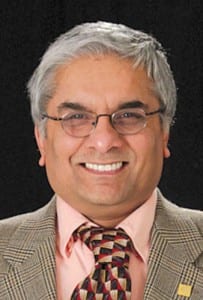
Dr. Sri Seshadri, “In India, the (electric) supply is extremely low, and demand is extremely high. When kids go home, there’s no light to study, and they do very poorly on exams as a result.”
“In India, the (electric) supply is extremely low, and demand is extremely high,” Seshadri said. “When kids go home, there’s no light to study, and they do very poorly on exams as a result.”
The goal of the Vidya Deepa project is to increase the number of students in rural schools who pass the Secondary School Leaving Certificate exam, which all Indian students take in tenth grade. The exam determines whether a student can continue to postsecondary education. If students don’t pass the exam, they cannot attend a university and instead must enter the workforce immediately, Seshadri said.
Over the lamps’ life expectancy of 10 years, nearly 45,000 Indian children should benefit from these lamps before they have to be replaced, Peterson said.
“You’re trying to break a cycle of illiteracy,” he said. “Education is the key there, in our view. This project can and will make a huge impact there.”
In the United States, a lamp may seem like a minor step toward a better education for children. But in India, it’s a vital tool that could potentially help hundreds of thousands of Indian students move on to postsecondary education and higher-paying careers.
“In India, kids don’t have to go to school,” Butz said. “If they’re not in school, they go to work. So it seems like the ones who are in school appreciate education more. Every student we met told us how much they appreciated the lamps and the computers.”
This isn’t the first international project that either the Kearney Dawn or the Holdrege Rotary clubs have supported. Every Rotary club, at any level, is encouraged to give toward both local and international areas of concern, Peterson said.
In addition to the India project, the Kearney Dawn Rotary Club has supported wells in Haiti, a school in Nepal and water projects in Guatemala.
Rotary has 1.2 million members in more than 200 countries, according to its website. The organization strongly encourages international projects coordinated between different countries, Butz said.
“One of Rotary’s goals is for international peace,” Butz said. “Projects like this promote goodwill and cooperation among nations. While we were there, Don and I felt like we were a part of the Bangalore West Rotary Club. We are all friends now.”
While the Nebraska district’s involvement in the project is now over, the Bangalore club hopes to partner with more U.S. clubs in the future to continue the Vidya Deepa project and bring even more light to children in these remote areas.
“This was a big deal to these schools,” Butz said. “I hope the project can continue. It was something very special to be a part of and something I will always remember.”
email to: ashley.white@kearneyhub.com

